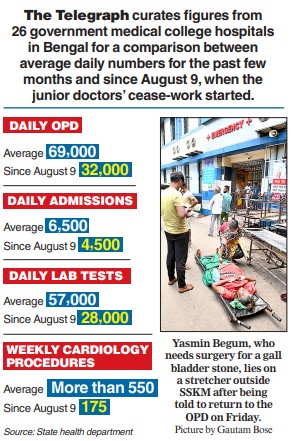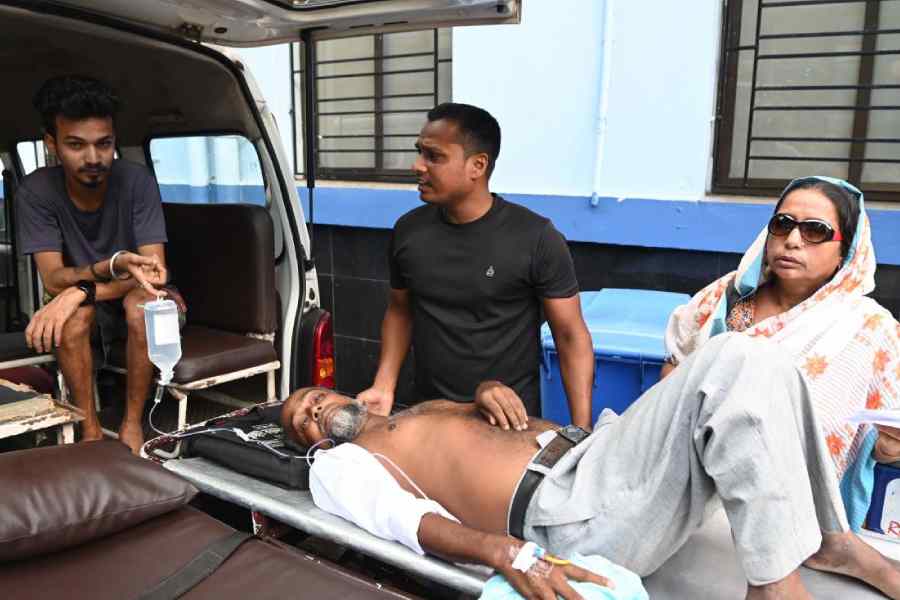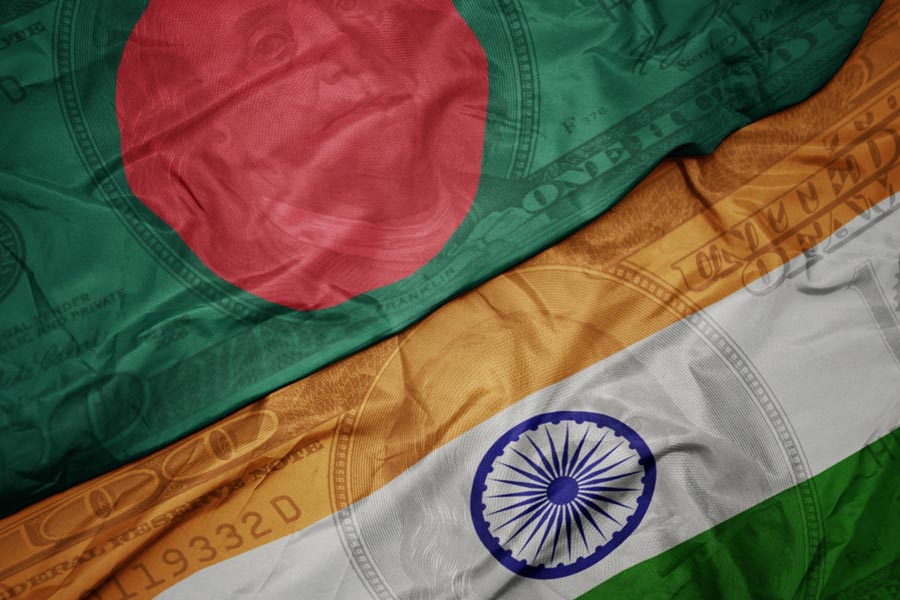The junior doctors’ 21-day-old cease-work has led to nearly seven lakh patients being denied treatment at OPDs and scores others being denied admission or diagnostic tests at government teaching hospitals, state health department officials said.
There is no count yet of the human toll on the patients.
Medical college hospitals in Calcutta and its neighbourhood are the worst-affected, since they are where the highest number of patients come expecting better treatment, health officials said. The patients to have suffered include those with cancer and neurological, heart or orthopaedic ailments.
The cease-work began on August 9 after a second-year postgraduate trainee was raped and murdered at the RG Kar Medical College and Hospital.
An average 69,000 patients were treated daily at the OPDs of the 26 government medical college hospitals across Bengal over the past few months till August 8. Following the cease-work, the number has dropped to 32,000.
Daily admissions have fallen from an average of 6,500 to 4,500; and laboratory tests — including biopsies, crucial to the diagnosis and treatment of cancer — are down from a daily average of 57,000 to 28,000.

Before the protests began, more than 500 cardiac procedures would be performed a week at the government medical colleges. The number has been 175 since August 9.
Thousands of beds lie vacant at the government medical college hospitals but patients are still being turned away because there are not enough doctors to treat them, an official said.
“Ordinary patients are severely inconvenienced by the cease-work. We are deeply worried and are appealing to the protesters to come back to work. But till now, there has been no headway,” a health department official told The Telegraph on Thursday.
At Medical College Kolkata, about 3,200 patients came to the OPD clinics on Thursday. Before the cease-work, an average 7,000 came every day.
“The number of laboratory tests done per day used to be 600 to 700; it has fallen to about 300,” a health department official said.
About 1,100 general beds are vacant at the premier hospital. “About 1,900 patients are admitted there; the total number of general beds at the hospital is 3,000,” the official said.
He added that all critical-care beds — at the CCU, NICU, PICU — were occupied. “The senior doctors are working overtime to provide all the services
to patients,” the official said.
At the epicentre of the protests — RG Kar — only 153 patients were under treatment at the start of this week.
“We had only 153 patients admitted to the hospital. About 1,800 beds lay vacant,” an official said.
The picture was worse in the initial days after the cease-work started.
“Only about 1,000 people are coming to the OPDs. Before the cease-work, the daily footfall at the OPD clinics used to be around 6,000 every day,” an official said.
“We have asked the district hospitals and primary and block health centres to take greater loads of patients since many of them are being denied treatment at the tertiary hospitals,” another health official said.
Some of the districts are witnessing an increased footfall of patients at the smaller facilities. Primary and block health centres as well as district hospitals in North 24-Parganas have seen a 20 per cent increase in patients.
The only department unaffected by the cease-work is gynaecology and obstetrics, sources said.
“When a childbirth takes place at a medical college hospital, the junior doctors, despite being on strike, help their seniors,” a health official said.











